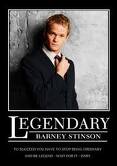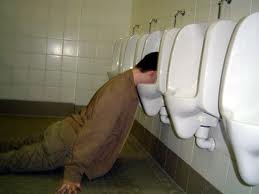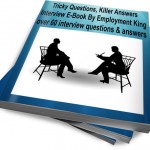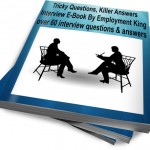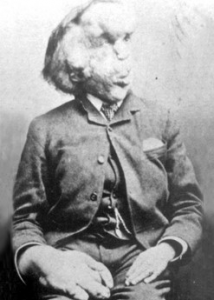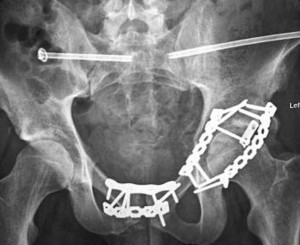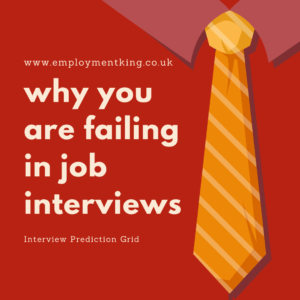Ten Stupid Ways to Fail Your Job Interview
After weeks of job hunting and searching through thousands of job vacancies, editing your CV for each individual job and writing targeted covering letters you finally land the all-important interview for your dream job. Don’t mess up your job interview by making these 10 stupid mistakes that will ensure you fail your job interview.
1. Farting During the Interview
We all get nervous during job interviews including celebrities and even the wife of ex-presidents. Hilary Clinton during an interview didn’t realise how sensitive her microphone was when she accidentally farted during her TV interview – we don’t know if this embarrassing mistake was due to a bad diet or bad nerves
2. Telling Big Fat Lies
Job hunters often stretch the truth during job interviews to gain the upper hand over other job applicants, but Callie Armstrong took it one step too far when she lied at about being Jewish and being able to speak Hebrew! It paid off though as she was not only offered a job but a year later married one of the Jewish graduates from the school where she secured work, which meant she had to convert to Judaism. But when did she tell the groom about the lie, before or after the wedding?
3. Agreeing with everything the interview says even the Lie’s on your CV
Jen from the IT Crowd got stuck after lying on her CV about her IT skills and was offered the IT management job. Explaining later during to the interviewer “I’ve got a lot of experience with the computer…thing, you know e-mails…, sending e-mails, receiving e-mails,…deleting e-mails, I could go on…”
4. Using an Over Creative Video CV
You need your CV or Resume to stand out from the crowd, but Barny from How I Met Your Mother took this a little to far as you see him flying airplanes, driving monster trucks and parachuting off cliffs to the soundtrack “I’m so Awesome”
5. Arriving to the Job Interview with a Cockatoo on Your Shoulder
Some job hunters really don’t understand the importance of the first impression, especially one guy who attended a job interview with a cockatoo on his shoulder. Robert Half completed a recent survey on outstanding interview mistakes and outrageous interview blunders
6. Wearing your PJ’s to the Interview
According to a recent survey of more than 670 HR managers, many job hunters don’t understand the importance of wearing smart attire during the interview, with some interviewees arriving at the interview dressed in their nightwear, thankfully this was PJs and slippers and not boxer shorts and socks
7. Giving Joke Answers to Serious Questions
Some interviewers want to stand out from the crowd, instead of asking about your experience, qualifications or what can you bring to the organisation? They will ask dumb questions such as “if you were a cookie what cookie would you be?” don’t get caught out by thinking this is a joke question responding with a joke answer such as a “A smart cookie” read more about dumb interview questions and answers on the link below
8. Not Thinking About your Interview Answers
I love hearing funny responses to interview questions, some interviewees are so nervous during the Q&A section of the interview that they respond to interview questions with the first thought that pops into their head; one guy was asked “why do you want to work here” and responded with “because I fancy the girl in reception” another applicant in a sales interview was asked how he would handle a difficult client? He told the interviewer he had the perfect solution – wrestle his clients to the ground instead of trying to work out any differences.
9. Don’t Go To an Interview Drunk
No matter what you do wrong to prepare for an interview don’t go out drinking until 5 in the morning before your job interview as “the speakman” can confirm that no matter how many cups of coffee you drink you will still feel absolutely hammered. This unlucky guy not only had to attend a face to face interview while drunk, but had to complete a number of IQ and maths test that lasted all day. With an oncoming hangover, the interviewee was secretly hoping he would fail each stage of the interview process so he could grab a quick taxi home and straight to bed, but luckily or unluckily he passed each stage of the interview process even though his breath smelt of kebab and his stomach felt like it was ready to explode
10. Don’t get Arrested During the Job Interview
One sure way to guarantee you don’t receive a job offer during a job interview is when you get arrested for murder between answering questions. An unnamed girl accused of murdering two young men, was wanted by police who could not locate her, but they knew that the girl had a job interview due and waited for the girl to attend the job interview before arresting her – to the surprise of the interviewees
You can fail your job interview in many stupid ways with most popular way being, interviewees not practicing the interview questions. You can now learn the Killer Answers to Tricky Questions.
If you enjoyed reading this article you will also enjoy reading:





